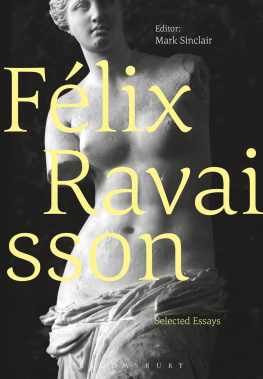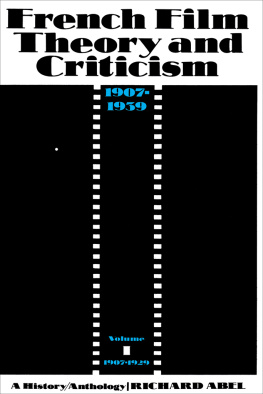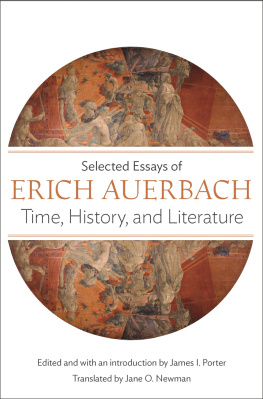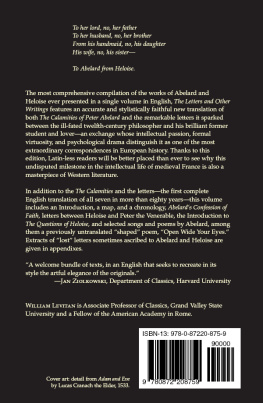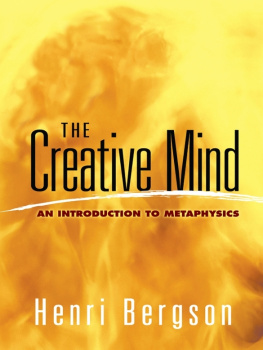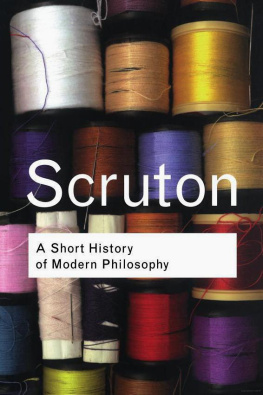Flix Ravaisson
ALSO AVAILABLE FROM BLOOMSBURY
Being and Event , Alain Badiou
Conditions , Alain Badiou
Infinite Thought , Alain Badiou
Logics of Worlds , Alain Badiou
Theoretical Writings , Alain Badiou
Theory of the Subject , Alain Badiou
Key Writings , Henri Bergson
Principles of Non-Philosophy , Franois Laruelle
From Communism to Capitalism , Michel Henry
Seeing the Invisible , Michel Henry
After Finitude , Quentin Meillassoux
Time for Revolution , Antonio Negri
The Five Senses , Michel Serres
Statues , Michel Serres
Rome , Michel Serres
Leibniz on God and Religion: A Reader , edited by Lloyd Strickland
Art and Fear , Paul Virilio
Negative Horizon , Paul Virilio
Althussers Lesson , Jacques Rancire
Chronicles of Consensual Times , Jacques Rancire
Dissensus , Jacques Rancire
The Lost Thread , Jacques Rancire
Politics of Aesthetics , Jacques Rancire
Of Habit , Flix Ravaisson
Flix Ravaisson
Selected Essays
Edited by Mark Sinclair
Bloomsbury Academic
An imprint of Bloomsbury Publishing Plc
Contents
Of Habit was first published as De lhabitude in Paris by H. Fournier in 1838. The translation here is modified, by Mark Sinclair, from his 2008 (London: Continuum) translation with Clare Carlisle.
Contemporary Philosophy, translated by Jeremy Dunham, was originally published as Philosophie Contemporaine: Fragmens de Philosophie par M. Hamilton in La Revue des deux mondes 1840, pp. 397427.
Essay on Stoicism, translated by Adi Efal and Mark Sinclair, was first published as Mmoire sur le Stocisme, Mmoires de lInstitut Impriale de France, Acadmie des Inscriptions et Belles-Lettres , vol. XXI, 1857, pp. 194.
The Art of Drawing According to Leonardo da Vinci is a translation, by Mark Sinclair, of the first, untitled main section of Rapport address M. le ministre de lInstruction publique et des cultes, 28 December 1853, published in 1854 as De lenseignement du dessin dans les lyces (Paris: Dupont).
On the Teaching of Drawing, translated by Tullio Viola and Mark Sinclair, was originally published under the heading Lenseignement du dessin daprs M. F. Ravaisson within the entry Dessin of F. Buisson (ed.), Dictionnaire de pdagogie et dinstruction primaire Vol. 1 (Paris: Hachette), pp. 67184, in 1882.
The Venus de Milo, translated by Mark Sinclair, is the third section, pp. 188256, of La Venus de Milo in Mmoires de lAcadmie des Inscriptions et Belles-Lettres , 1892, vol. XXXIV, Part I, pp. 145256, which was also published as an off-print by Klincksieck, Paris, in the same year.
Greek Funerary Monuments, translated by Mark Sinclair, was originally published as Les monuments funraires des Grecs in Revue politique et littraire. Revue bleue, 10 April 1880, vol. XVIII, pp. 96370.
Mysteries: Fragment of a Study of the History of Religions, translated by Mark Sinclair, was originally published as Les mystres. Fragment dune tude sur lhistoire des religions in Revue politique et littraire. Revue bleue, 19 March 1892, pp. 3626, and appeared as an off-print (Paris: Picard) the same year.
Pascals Philosophy, translated by Mark Sinclair, was published as La philosophie de Pascal in La Revue des deux mondes 80, 1887, pp. 399428.
Metaphysics and Morals, originally published as Mtaphysique et Morale and translated by Mark Sinclair, was the lead essay in the inaugural issue of the Revue de mtaphysique et de morale in 1893, pp. 625.
Philosophical Testament, translated by Jeremy Dunham and Mark Sinclair, was first edited and published by Xavier Lon in Revue de mtaphysique et de morale 9/1 (1901), pp. 131, and a second, expanded edition of the text, which is reproduced here, appeared thanks to Charles Devivaise in 1933 (Paris: Boivin).
Jeremy Dunham is a Leverhulme Research Fellow at the University of Sheffield Philosophy Department. He has written several articles on nineteenth-century French philosophy, including From Habit to Monads: Flix Ravaissons Theory of Substance and Idealism, Pragmatism, and the Will to Believe: William James and Charles Renouvier, both in the . He is currently working on the importance of basement level cognitive processes (habits, instincts, etc.) for perception, thought and reasoning in pragmatist and idealist philosophy.
Adi Efal is currently a post-doctoral researcher at the a.r.t.e.s humanities graduate school at the University of Cologne. Her work circles around art historiography, art theory and the history of concepts.
Mark Sinclair is Senior Lecturer in Philosophy at Manchester Metropolitan University and Associate Editor at the British Journal for the History of Philosophy . He is the author of a number of essays on the French spiritualist tradition, and is currently working on a monograph on Ravaisson that will also contribute to the contemporary metaphysics of powers.
Tullio Viola is a researcher ( wissenschaftlicher Mitarbeiter ) in philosophy at the Humboldt-Universitt in Berlin, where he was awarded his PhD in 2015, after studying in Pisa, Lyon and Berlin. He works on the history of nineteenth- and twentieth-century philosophy, American Pragmatism, the philosophy of culture and aesthetics.
Whether or not the nineteenth century is or still is the most obscure, as Martin Heidegger once remarked, of all the centuries of modernity, the present volume of essays by a figure who was in many ways Frances most influential philosopher in the second half of the century, and who was pivotal in the spiritualist tradition that runs from Maine de Biran at the beginning of the century to Bergson at its end, should dissipate some more of this obscurity. It contains the most important of the shorter pieces in philosophy, certainly, but also in art-theory, archaeology, pedagogy, theology and the history of religions that Ravaisson wrote from the beginning of his long career to his death in 1900. The volume should therefore facilitate the nascent English-language reception of Ravaissons work as a whole, and provide increased historical context to the recent, second wave of English-language Bergson studies.
Ravaisson whose full name became Jean-Gaspard-Flix Lach Ravaisson-Mollien was born in 1813 in Namur, then in France, where his father, Franois-Ambroise-Damien Lach-Ravaisson, was city treasurer. His parents left the city when French rule of Belgium ended with Napoleons defeat the following year, and his father, dclass in that he was unable to obtain a comparable position, died the year after that. His mother, Pauline-Gaspard Mollien, though related to Nicolas-Franois Mollien, Treasury Minister under Napoleon, was left to raise her two sons while managing an office of the Royal Lottery in Dunkerque. Both boys gained a taste from her for music and the arts; her younger son, the future philosopher, was taught to paint also by students of David, and would later exhibit his own work at the Paris Salon under the name Lach.
After brilliant success at the Collge Rollin in Paris in 1833 he won first prize in the philosophy section of a national competition, the Concours gnral des collges de
The combined effect of Cartesianism, the Revolution and the Ideological school had meant that philosophy in France had lost contact with much of its history, and Cousin translator of Plato and Proclus did important work rediscovering the tradition. With this renewed historical awareness, Cousins spiritualist philosophy took the form of an eclecticism, according to which all possible philosophical positions fall under the four headings of idealism, materialism, scepticism and mysticism. The history of philosophy is the expression of these archetypes, and the task of thinking in the present consists in synthesizing the truths, and rejecting the errors, to be found in each of them. If both materialism and mysticism were to different degrees to be rejected (in time Cousin would accommodate revealed, Christian religion), this critical enterprise was to be grounded on a synthesis of idealism and scepticism. Cousin proposed to resolve the differences between German idealist philosophy, particularly the work of F. W. J. Schelling, and British empiricism, particularly the Scottish common-sense school. A spiritualist and eclectic philosophy had to preserve itself from the excesses of idealist speculation and empiricist scepticism, while synthesizing both by means of a certain liberal bon sens , just as the July monarchy represented, according to the Citizen King Louis-Philippe, a juste milieu , a liberal middle-of-the-road between the figures of reaction and socialist republicanism that had crystallized in France.

